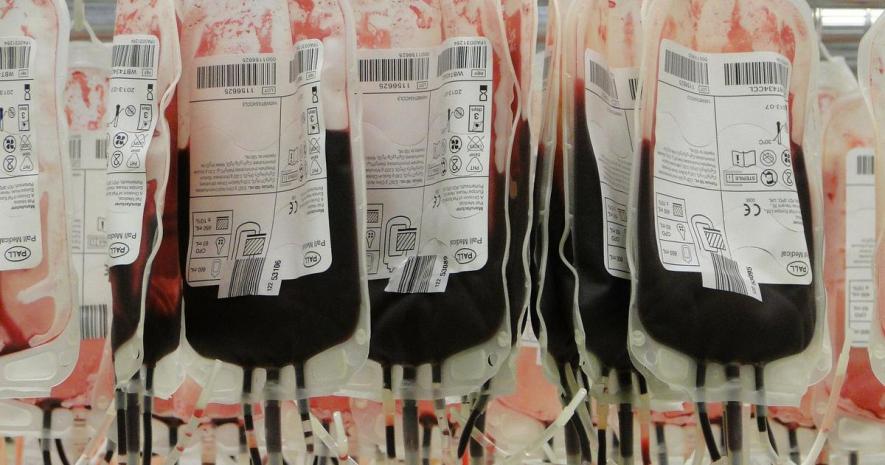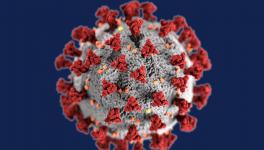‘Our Biggest Risk is Lack of Blood, Not the Virus’: Say Thalassemia Patients as Blood Banks Face Shortage

Image Courtesy: scroll.in
Various other health services have taken a hit in the wake of the coronavirus pandemic. Blood banks in various hospitals across India have raised concerns over decreasing blood reserves. The 21-day lockdown is affecting the movement of blood donors across the country, leading to a shortage in the availability of blood for patients who are dependent on transfusion as a life-saving measure.
‘Taking chances with our lives, daily’
Access to transfusion centers and depleting blood reserves are causing serious distress to those whose lives are at risk. Speaking to NewsClick, Shivani, a Thalassemia patient said that a select number of people were getting blood. “We have to reach out to the Red Cross Society to get our supply. We are at the mercy of the donors; this is life threatening for us and our immunity is at risk. For us, the bigger risk is the lack of availability of blood, more than the virus,” she added.
A patient with Thalassemia, a blood disorder in which the body produces less haemoglobin, needs a blood transfusion between 14 to 16 days.
The Ministry of Health and Family Welfare has issued an advisory calling for voluntary blood donations. However, with the entire focus on the prevention of COVID-19, doctors fear that neglect in other areas may lead to greater health risks.
The only option patients now have is to depend on appeals and donations through social media platforms. However, many do not have such privileges.
Anubha Taneja-Mukherjee, who leads the Thalassemia Patients Advocacy Group (TPAG), said that donors are scared to come out, since they do not know what precautions to take. “When we have donors, if they donors do not have vehicles, our e-passes get rejected. Cab services are not an option. How people access centers is the most difficult bit,” she said.
“Many smaller cities do not have blood transfusion centers. In many states there are centres that have been closed down. In addition to this, certain hospitals have been converted into COVID zones and hospitals, increasing the burden on other hospitals,” she added.
While the government has recommended that local welfare associations organise blood donation camps, coordination remains a big issue. More so, blood platelets have a shelf life of only seven days. Thus, in absence of a continuous supply, reserves are bound to dip. The World Health Organization recommends that the blood requirement of one percent of a country’s population be used as an estimate of its blood needs. By this measure, India was short of 1.9 million units of blood a year, according to an IndiaSpend article from June 2018. Experts said this is because India does not have a system to manage blood banks and that not many people donate, unless someone in their family needs it.
Read More: COVID-19: ‘Treat Women’s Health as Top Priority,’ Delhi HC tells State Government
Get the latest reports & analysis with people's perspective on Protests, movements & deep analytical videos, discussions of the current affairs in your Telegram app. Subscribe to NewsClick's Telegram channel & get Real-Time updates on stories, as they get published on our website.
























